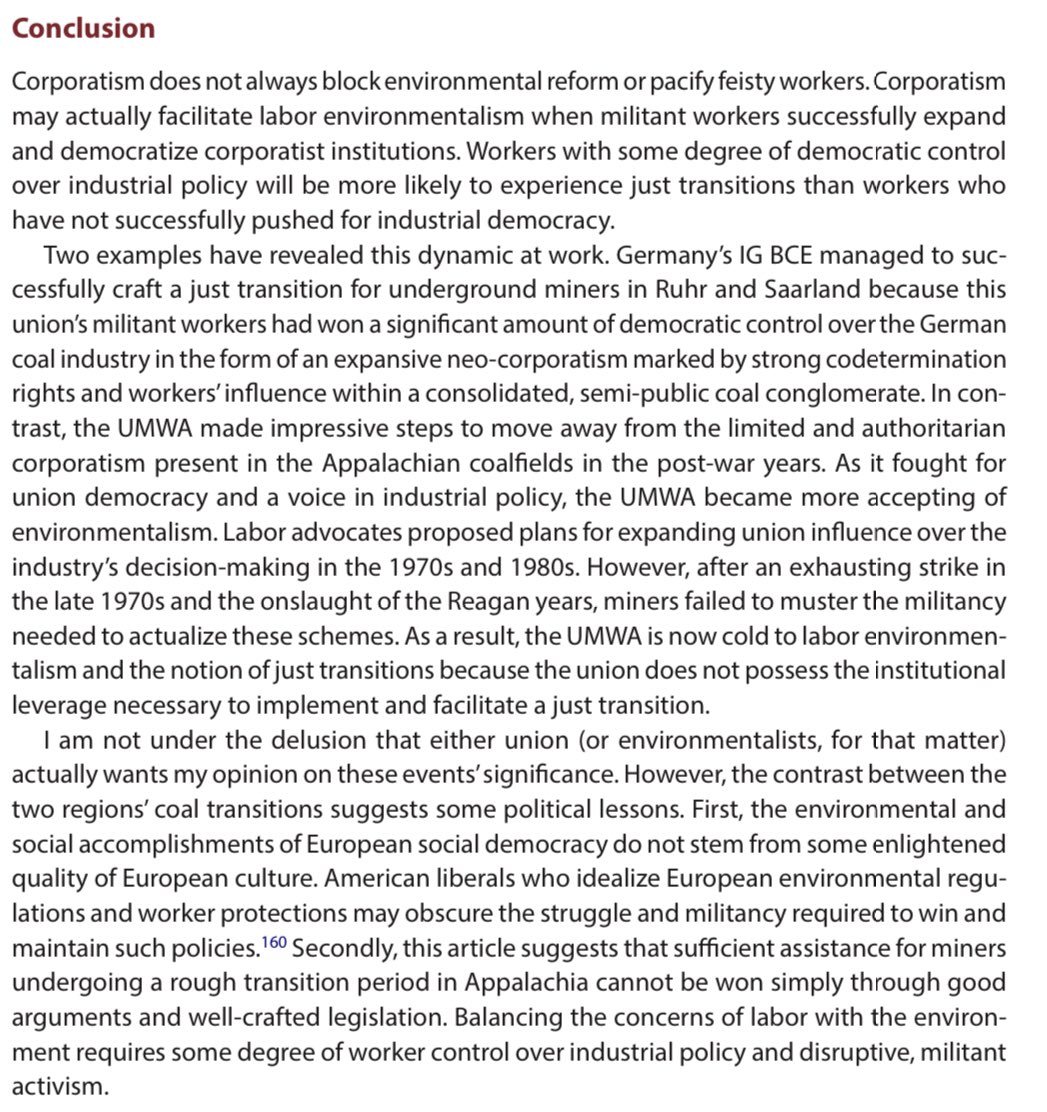When I talk about unions people often ask “aren’t you afraid workers will get too powerful?” and in the current context of the US it feels sort of like saying “aren’t you afraid you’ll trip and fall if you run away from this bear that’s trying to eat your face?”
It is possible to have poorly designed institutions that lead to perverse incentives, but the problem isn’t worker power itself
https://twitter.com/jdcmedlock/status/1300142200395710464
The nordics manage to have near universal public sector unionization without major issues because the government acts as an institutionalized voice for the public, rather than just rolling over to demands (as we’ve done in the US with police unions)
https://twitter.com/robert_t_orr/status/1295440414049292290
One concern is unions preserving jobs in dying industries like coal. This paper compares the US and Germany, showing that it’s actually worker strength in Germany that enabled mining unions to support phasing out coal with a just transition for workers
tandfonline.com/doi/abs/10.108…
tandfonline.com/doi/abs/10.108…

• • •
Missing some Tweet in this thread? You can try to
force a refresh












